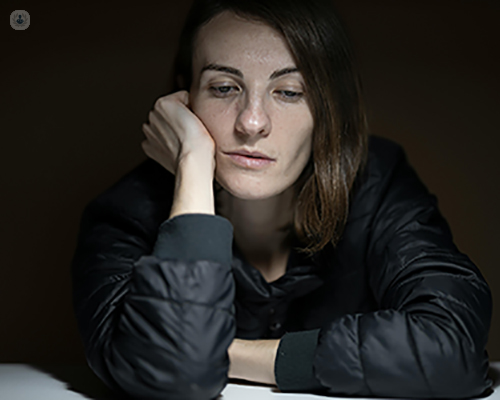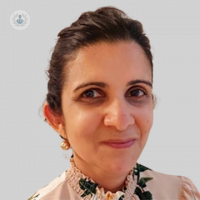Deep rTMS: A new hope for mental health
Autore:In the realm of psychiatric treatment, innovative therapies are continually evolving to provide relief for those grappling with mental health disorders. One such groundbreaking approach is deep repetitive Transcranial Magnetic Stimulation (rTMS), a non-invasive technique that holds promise in alleviating a spectrum of psychiatric conditions. In her latest online article, Dr Aarohee Desai-Gupta delves into the intricacies of how deep rTMS influences both the mind and body, its efficacy, potential side effects, patient suitability, and the experience of undergoing this transformative therapy.

How does Deep rTMS impact the mind and body to help treat psychiatric disorders?
Deep rTMS operates on the principle of targeted electromagnetic stimulation of specific regions in the brain implicated in psychiatric disorders. By delivering magnetic pulses to these areas, deep rTMS modulates neuronal activity, promoting neuroplasticity and restoring the brain's equilibrium. This modulation of neural circuits is believed to ameliorate symptoms associated with various psychiatric conditions by rebalancing abnormal brain activity patterns.
What types of conditions can be treated with Deep rTMS?
The versatility of deep rTMS extends across a spectrum of psychiatric disorders. It has shown efficacy in treating depression, including treatment-resistant depression (TRD), bipolar depression, and seasonal affective disorder (SAD). Additionally, deep rTMS has demonstrated promise in addressing anxiety disorders, obsessive-compulsive disorder (OCD), post-traumatic stress disorder (PTSD), and even substance use disorders.
How successful is this form of treatment?
Research and clinical trials have consistently highlighted the effectiveness of deep rTMS in reducing symptoms and improving the quality of life for individuals with psychiatric disorders. Numerous studies have reported significant alleviation of symptoms, with some individuals experiencing sustained remission even after completing the treatment regimen. However, individual responses may vary, and the degree of success hinges on various factors, including the severity of the condition and treatment adherence.
Are there any long-lasting side effects associated with Deep rTMS?
One of the hallmark advantages of deep rTMS is its favourable safety profile. Unlike pharmacological interventions, deep rTMS typically entails minimal systemic side effects. The most commonly reported side effects include mild headache, scalp discomfort, or transient dizziness, which tend to diminish over the course of treatment. Long-term adverse effects are rare, making deep rTMS a well-tolerated therapeutic option for many individuals.
Which factors make a patient suitable for treatment with Deep rTMS?
Patient suitability for deep rTMS hinges on various factors, including the type and severity of the psychiatric disorder, previous treatment history, and individual health considerations. Generally, individuals who have not responded adequately to conventional treatments such as medication or therapy may be candidates for deep rTMS. However, a comprehensive assessment by a qualified healthcare provider is essential to determine suitability and tailor the treatment plan accordingly.
What happens during a typical treatment session? What does Deep rTMS feel like?
During a deep rTMS session, the patient sits comfortably while a specialised coil is positioned over the targeted brain region. The coil emits rapid magnetic pulses, which are typically painless and accompanied by a tapping or clicking sound. Most individuals describe the sensation as mild discomfort or a tingling sensation on the scalp, with no anaesthesia or sedation required. Treatment sessions typically last between 20 to 30 minutes and are administered daily over several weeks.
Dr Aarohee Desai-Gupta is an esteemed psychiatrist. You can schedule an appointment with Dr Desai-Gupta on her Top Doctors profile.


